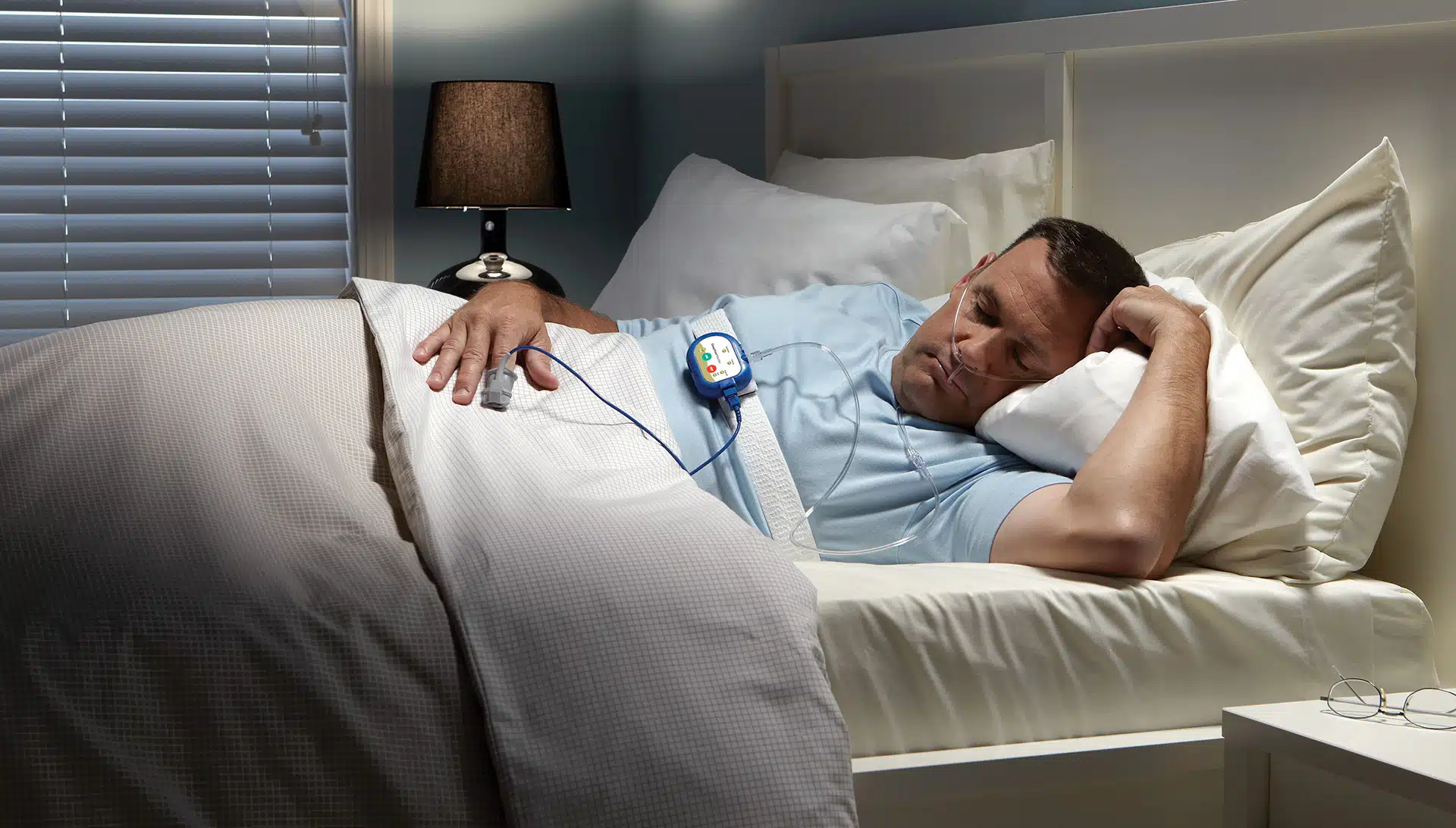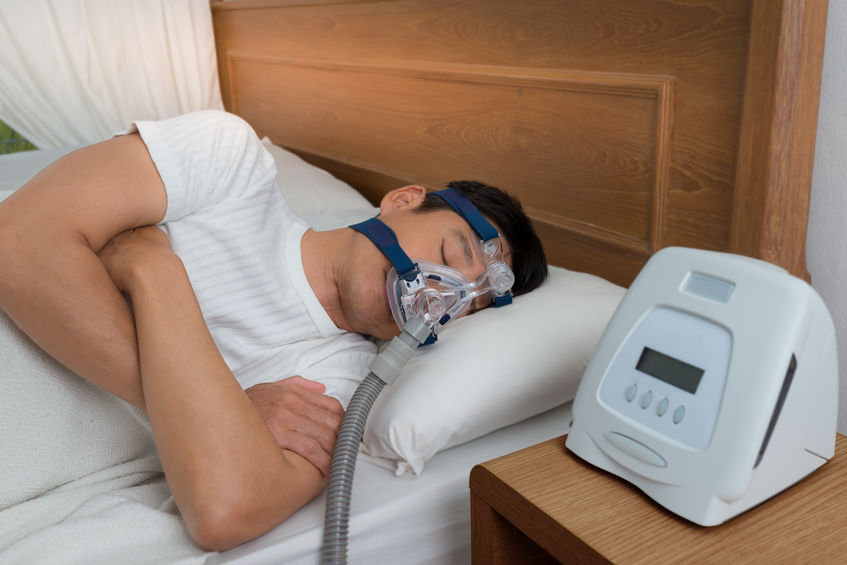Sleep Study Canberra: What Happens If Your Results Show Sleep Apnea?

What Is a Sleep Study and How Is It Conducted in Canberra?
A sleep study in Canberra provides a straightforward way to diagnose sleep-related breathing disorders through home-based testing that requires no hospital stay. Most providers offer this service without requiring a referral from your GP.
How Does a Home Sleep Study Work?
The home sleep study process begins when you collect a compact monitoring device from a local pharmacy or clinic. You’ll attach this small, non-invasive monitor to your forehead before bed, where it remains throughout the night whilst you sleep in your own comfortable environment.
What Does the Monitoring Device Measure?
The forehead device tracks multiple vital parameters simultaneously:
- Blood oxygen levels to detect drops caused by breathing interruptions
- Brain activity patterns during different sleep stages
- Heart rate variations throughout the night
- Breathing patterns and any pauses or irregularities
What Happens After the Sleep Study?
After completing the overnight test, you simply return the equipment the following day. A specialist doctor then reviews your data to identify any signs of sleep apnea or other breathing disorders. This non-invasive monitoring approach eliminates the need for uncomfortable wires, chest bands, or overnight hospital observation, making sleep testing Canberra residents can easily access a convenient and stress-free way to assess their sleep health without disrupting their normal routine.
How Long Does It Take to Get Results?
The entire process typically takes 24-48 hours from equipment collection to receiving preliminary results.
What Does It Mean If Your Sleep Study Results Show Sleep Apnea?
A positive sleep apnea diagnosis indicates your breathing repeatedly stops and starts during sleep due to airway obstruction. Obstructive sleep apnea (OSA) occurs when throat muscles relax excessively, causing partial or complete blockage of the upper airway.
What Do Specialists Look For in Your Sleep Study Data?
Specialists examine your sleep study data to identify specific patterns that confirm OSA. The results reveal:
- Apnoea-Hypopnoea Index (AHI): The number of breathing interruptions per hour
- Oxygen desaturation events: Drops in blood oxygen levels during sleep
- Sleep fragmentation patterns: Disruptions to normal sleep architecture
- Heart rate variability: Changes linked to breathing pauses
How Is OSA Diagnosed?
An AHI score of five or more events per hour, combined with characteristic obstructive sleep apnea symptoms, typically confirms the diagnosis. Mild OSA ranges from 5-15 events hourly, moderate spans 15-30, whilst severe cases exceed 30 interruptions per hour.
Why Is Specialist Expertise Important in Interpreting Sleep Study Results?
Interpreting sleep study results requires specialist expertise to distinguish OSA from other sleep disorders. The forehead monitor captures brain wave patterns showing brief arousals from sleep—your body’s emergency response to restore breathing. These micro-awakenings fragment sleep quality even when you don’t consciously remember waking.
What Do Specialists Assess Regarding Oxygen Levels?
Specialists also assess whether oxygen levels drop below 90%, indicating significant respiratory compromise requiring prompt treatment intervention. Such drops can lead to serious health issues, as highlighted in this study, which emphasizes the importance of maintaining adequate oxygen levels during sleep.
What Are the Health Risks Associated with Untreated Sleep Apnea?
Untreated sleep apnea creates serious cardiovascular strain that significantly increases your risk of high blood pressure, heart disease, and stroke. Each breathing pause forces your body into a stress response, spiking blood pressure and disrupting normal heart rhythms throughout the night.
The health risks of untreated OSA extend beyond cardiovascular complications. People with unmanaged sleep apnea face a higher likelihood of developing type 2 diabetes due to the condition’s impact on insulin resistance and glucose metabolism. The repeated oxygen deprivation affects how your body processes blood sugar, creating metabolic dysfunction over time.
Moreover, there are beyond-heart-health consequences of obstructive sleep apnea that can severely impact overall wellbeing.
Daytime consequences of untreated sleep apnea include:
- Severe fatigue and reduced concentration during work or daily activities
- Increased risk of motor vehicle accidents due to drowsiness behind the wheel
- Higher rates of workplace injuries from impaired alertness and reaction times
- Memory problems and difficulty processing information
- Mood changes including irritability and depression
Research shows that drivers with untreated sleep apnea are up to five times more likely to be involved in road accidents compared to those receiving treatment. The daytime fatigue risks affect not only your safety but also your professional performance and quality of life. Chronic sleep disruption from breathing interruptions prevents your body from reaching restorative sleep stages essential for physical recovery and cognitive function.
What Treatment Options Are Available After a Positive Sleep Apnea Diagnosis?
CPAP therapy Canberra is the main treatment for obstructive sleep apnea. It involves using a continuous positive airway pressure machine that delivers pressurised air through a mask worn during sleep. This airflow creates enough force to keep your throat muscles from collapsing and blocking the airway.
How CPAP Therapy Works
The CPAP device consists of three main parts:
- A motor that generates the pressurised airflow
- A mask that fits over your nose, mouth, or both
- A tube connecting the motor to the mask
Where to Get CPAP Machines in Canberra
You can easily find CPAP machines for sale at pharmacies and medical equipment suppliers throughout Canberra. Many local providers also offer mask fittings and equipment demonstrations to ensure you know how to use it properly from the beginning.
Alternative Treatments for Sleep Apnea
Dental appliances for OSA are another option for patients who cannot tolerate CPAP machines. These custom-fitted devices work by repositioning the jaw and tongue during sleep, which helps prevent airway collapse. If you’re interested in this treatment option, specialist dentists in Canberra can evaluate whether you’re a suitable candidate.
Developing a Treatment Plan
After being diagnosed with sleep apnea, your healthcare provider or pharmacist will typically work with you to create a treatment plan tailored to your needs. This plan will take into account factors such as:
- The severity of your condition
- Your personal preferences
- Any lifestyle factors that may impact your treatment
Some patients find success by combining multiple therapies, while others may need to make adjustments to their initial treatment plan based on ongoing monitoring. You may like to visit https://6rounds.com/sleep-testing-in-canberra-how-to-prepare-and-sleep-comfortably-overnight/ to get how to prepare and sleep comfortably overnight.
When Is Further Medical Evaluation Required Following a Sleep Apnea Diagnosis?
Specialist referral for OSA becomes necessary when initial sleep study results reveal severe or complex patterns of breathing disruption. Most straightforward cases respond well to CPAP therapy managed through pharmacists and healthcare providers, but certain situations demand general practitioner involvement or consultation with sleep medicine specialists.
Patients experiencing persistent symptoms despite CPAP treatment require advanced sleep apnea treatment assessment. This includes individuals who cannot tolerate CPAP machines, those with central sleep apnea (where the brain fails to signal breathing muscles), or cases involving significant cardiovascular complications. Your healthcare provider will arrange appropriate referrals based on these factors.
Medical evaluation beyond standard treatment is warranted when:
- Sleep apnea severity scores indicate extreme oxygen desaturation levels
- Underlying conditions such as heart disease or respiratory disorders complicate treatment
- CPAP therapy proves ineffective after proper adjustment periods
- Surgical interventions or alternative therapies need consideration
- Symptoms suggest multiple sleep disorders requiring comprehensive investigation
Your general practitioner coordinates care between specialists, monitors treatment progress, and addresses related health concerns like hypertension or diabetes that often accompany sleep apnea. They review medication interactions with CPAP therapy and ensure holistic management of your condition.
Canberra-based sleep specialists provide targeted interventions including advanced diagnostic testing, surgical consultations, or prescription of alternative devices like bi-level positive airway pressure (BiPAP) machines when standard approaches prove insufficient.

How Are Sleep Study Services Accessed and Supported Locally in Canberra?
Canberra sleep study services operate through a network of participating pharmacies and clinics across the region. Patients can collect their home testing equipment from these convenient locations without needing a doctor’s referral.
Pharmacy-based testing makes the process straightforward—you pick up the forehead monitor device, complete the overnight study at home, then return it to the same location. Results are reviewed by specialist doctors who provide detailed reports within days.
Local support for OSA patients extends beyond diagnosis. Many pharmacies stock CPAP machines and accessories, allowing you to discuss results face-to-face with trained staff who can guide you through treatment options. Clinics also offer ongoing consultations to adjust therapy as needed, ensuring continuous care close to home.
Conclusion
Managing sleep apnoea in Canberra starts with recognising symptoms and acting quickly. The importance of early diagnosis cannot be overstated—untreated OSA compounds health risks daily. Canberra residents benefit from accessible sleep study services through local pharmacies and clinics, making testing and treatment initiation straightforward.
Ongoing care for OSA patients requires commitment to CPAP therapy or alternative treatments prescribed by specialists. Regular follow-ups ensure your treatment plan remains effective as your condition evolves. Local healthcare providers offer continuous support, from equipment maintenance to adjusting therapy protocols.
Don’t delay addressing sleep apnoea symptoms. Book a sleep study today through your nearest Canberra pharmacy or clinic. Early intervention protects your long-term health and restores quality sleep. Your journey to better rest and improved wellbeing begins with one simple step—getting tested.
FAQs-Sleep Study Canberra
A sleep study in Canberra is a simple, home-based test used to diagnose sleep-related breathing disorders such as obstructive sleep apnea. It involves wearing a small forehead monitoring device overnight in your own home—no hospital stay or GP referral required.
2. How Does a Home Sleep Study Work?
You collect a compact monitoring device from a local pharmacy or clinic, attach it to your forehead before bed, and sleep as usual. The device records key data throughout the night to assess your breathing patterns and oxygen levels.
3. What Does a Sleep Study Monitor Measure?
The home sleep monitor tracks several vital signs including:
Blood oxygen levels
Brain activity during sleep stages
Heart rate variations
Breathing patterns and pauses
This data helps specialists identify sleep apnea and other disorders.
4. How Long Does It Take to Receive Sleep Study Results in Canberra?
Results are typically available within 24–48 hours after returning the monitoring device. A specialist doctor reviews your data and provides a detailed report outlining any signs of sleep apnea.
5. What Does It Mean If Your Sleep Study Shows Sleep Apnea?
A positive sleep apnea diagnosis indicates repeated breathing pauses during sleep caused by airway obstruction. Specialists measure your Apnoea-Hypopnoea Index (AHI) to determine whether your condition is mild, moderate, or severe.
6. What Are the Health Risks of Untreated Sleep Apnea?
Untreated OSA increases your risk of heart disease, stroke, high blood pressure, and type 2 diabetes. It also leads to daytime fatigue, poor concentration, and a higher likelihood of accidents due to sleep deprivation.
7. What Are the Treatment Options After a Sleep Apnea Diagnosis?
The primary treatment is CPAP therapy, which uses a mask and machine to deliver continuous airflow that keeps your airway open. Alternatives include dental appliances that reposition the jaw and lifestyle modifications under medical guidance.
8. When Should You See a Specialist After a Sleep Apnea Diagnosis?
You should seek specialist evaluation if your condition is severe, if CPAP therapy is ineffective, or if you have underlying health conditions like heart disease. Sleep specialists in Canberra offer advanced testing and alternative treatment options such as BiPAP therapy.
9. Where Can You Access Sleep Study and CPAP Services in Canberra?
Canberra residents can access home sleep studies through participating pharmacies and clinics without a GP referral. These providers also offer CPAP machines, mask fittings, and ongoing support to help manage sleep apnea effectively.